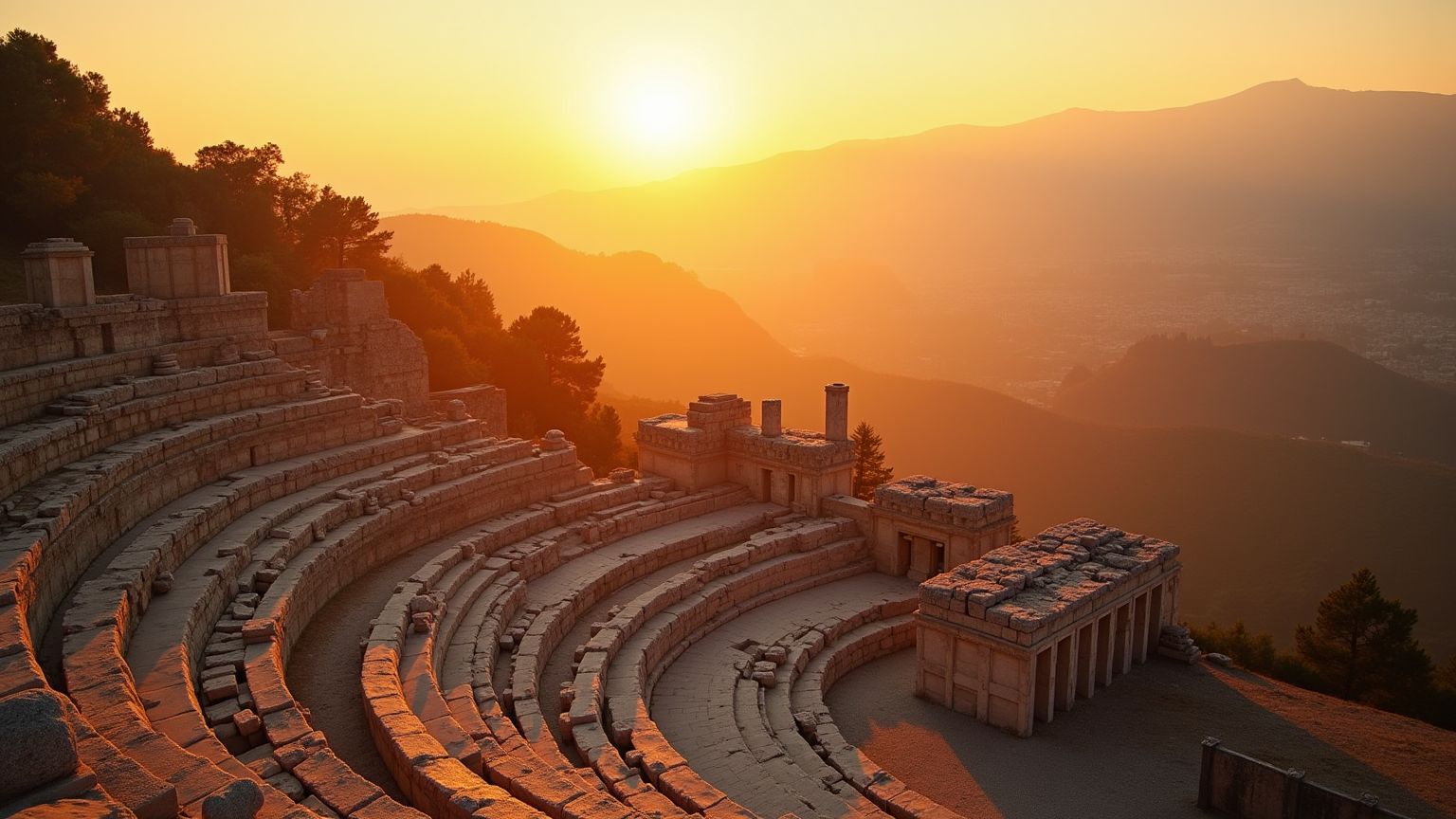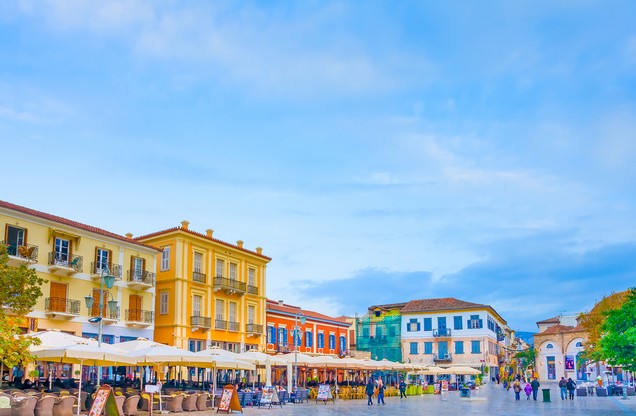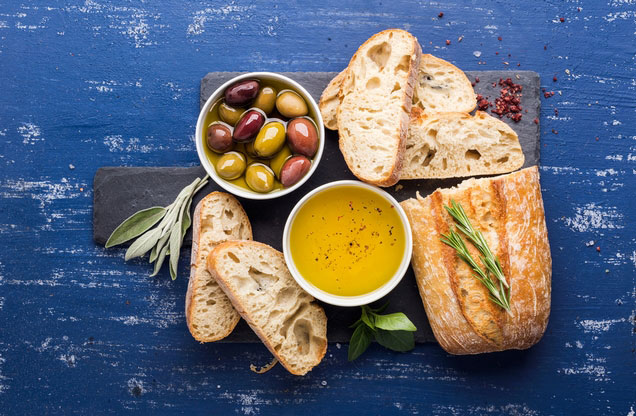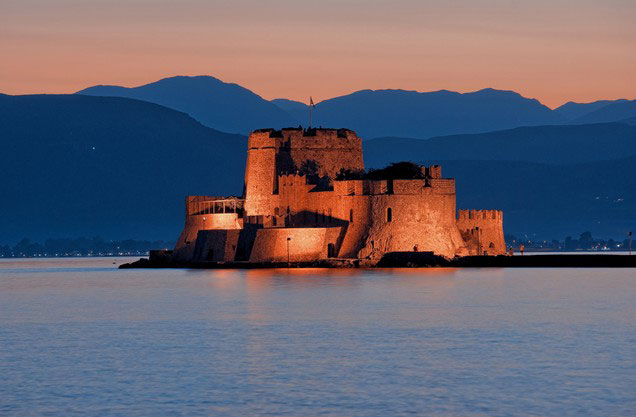Ancient Epidaurus Wonders: Experience Olive Oil Heritage
Sunlight dapples through silver-leaved branches as I duck beneath an ancient olive tree. That familiar Mediterranean scent—earth, salt, and something distinctly Greek—hangs in the air. Here in the Peloponnese, Nafplio stands as a gateway to twin treasures: our "liquid gold" and the stone echoes of ancient Epidaurus.
The Ancient Legacy of Greek Olive Oil
Gnarled and twisted, olive trees witnessed the birth of Western civilization—silent sentinels predating even our earliest written records. Gods fought over them. Farmers prospered through them. Athletes were crowned with their branches.
I'll never shake the memory of my grandmother's rough hands, stained purple-black during harvest season, as she'd tell me, "This tree fed your great-grandfather's great-grandfather." Time means something different when measured in olive harvests.
Greek oil ruins you for the bland supermarket stuff forever. Trust me on this. After tasting something pressed from Koroneiki olives grown in these hills, you'll look at that bottle in your pantry with newfound disappointment.
The first time I properly tasted premium Greek oil—that distinctive peppery burn that catches in your throat—I actually coughed! My host just nodded knowingly. "That's how you know it's the good stuff." She was right.
Starting Your Journey in Beautiful Nafplio
Nafplio Quick Facts:
- First capital of modern Greece (1821-1834)
- Dominated by the massive Palamidi fortress (999 steps to the top!)
- Perfectly preserved Venetian, Ottoman, and neoclassical architecture
- Locals still argue about the best gelato spot (it's Antica Gelateria, fight me)
This town feels like something from a storybook—narrow stone alleys opening suddenly to sun-drenched squares, bougainvillea spilling over honey-colored walls. Morning coffee here is less a routine than a religious experience.
From Nafplio's colorful harbor, our journey winds through countryside that hasn't fundamentally changed in millennia. The contrast hits you immediately: ancient groves surrounding stainless steel production facilities—5,000 years of tradition meeting cutting-edge tech. This same landscape has connected Nafplio with ancient Epidaurus since time immemorial.
Inside the Modern Olive Oil Production Facility
The "Olive Garden" facility hits you first with smell—not the generic olive scent you might expect, but something sharper, grassier, almost peppery. It's the aroma of olives being crushed right that moment, their cells rupturing to release that precious oil.
"We baby these olives," Dimitri tells me, patting a massive steel crusher with surprising affection. "From branch to bottle in under four hours. Any longer and oxidation starts robbing the flavor." His family has produced oil for six generations, but embraced modern methods only reluctantly, after blind-testing proved they could maintain quality while increasing yield.
"Temperature control is everything," explains Maria, the production manager. "Above 27°C and you're destroying the polyphenols—the very compounds that make our oil healthy AND delicious. That's why we call it 'cold-pressed.'"
The massive centrifuges spin hypnotically, gradually separating water from oil without heat or chemicals. Nothing added, nothing removed—just pure fruit juice.
The Art of Olive Oil Tasting
Forget everything you know about cooking oil. Professional tasting is closer to wine evaluation than anything culinary.
The Proper Tasting Method:
- Cup the small blue glass in your palm to warm the oil
- Cover with your other hand, swirl gently
- Uncover and immediately inhale deeply
- Take a small sip while drawing in air (yes, it makes a slurping noise—embrace it!)
- Let the oil coat your entire mouth before swallowing
- Notice the progression: fruit flavors first, followed by bitterness, ending with that distinctive peppery kick
"Close your eyes," instructs Eleni, our tasting guide. "What do you smell? Fresh-cut grass? Green tomatoes? Artichokes?" My neighbor mutters "bananas," and Eleni beams. "Exactly! That's the early-harvest Manaki variety!"
We sample oils from different microclimates—coastal groves produce markedly different flavors than mountain plantings, despite identical olive varieties and processing methods. Terroir isn't just for wine snobs anymore.
Later, chunks of fresh bread appear—not for dipping (heaven forbid!) but to cleanse our palates between samples. I watch a fellow traveler absentmindedly reach for salt. Eleni intercepts her hand with practiced grace. "Try without first. Good oil needs nothing else."

Exploring the Ancient Theater of Epidaurus
Just when your senses can't process any more olive-related information, the landscape opens up to reveal ancient Epidaurus. The region of ancient Epidaurus is home to some of Greece's most significant archaeological treasures. The famous theater of ancient Epidaurus emerges from the hillside like it grew there naturally—which, considering it was carved from existing limestone around 340 BCE, isn't far from the truth.
Standing at center stage, I drop a coin. The distinct 'ping' echoes back from the highest row, 55 meters away. No electronic amplification, no hidden acoustic tricks—just sublime mathematics and inspired design.
"Ancient Epidaurus never needed those silly masks with built-in megaphones that other Greek theaters used," boasts Costas, our guide. "A whisper here in ancient Epidaurus carries to all 14,000 seats. Perfect acoustic democracy—the poorest farmer in the highest row heard exactly what the wealthy merchant in the front row heard."
Summer still brings performances of Sophocles and Euripides to these ancient stones. Actors follow blocking established twenty-four centuries ago, speaking lines that have never lost their power to move audiences.
The Healing Sanctuary of Asklepieion at Ancient Epidaurus
Beyond the theater of ancient Epidaurus lies something even more fascinating—an entire medical complex dedicated to Asklepios, god of healing. This wasn't just a temple, but the Mayo Clinic of antiquity. The sanctuary at ancient Epidaurus represents one of the most important healing centers in the ancient world.
The Ancient Healing Process:
- Ritual purification in sacred springs
- Sacrifices to Asklepios (don't worry, mostly just honey cakes)
- "Incubation" — sleeping in the sanctuary to receive divine dreams
- Interpretation of dreams by priest-physicians
- Prescribed treatments ranging from diet changes to surgery
- Recreation therapy including theater attendance (medicine hasn't changed that much!)
The mysterious circular Tholos building dominates the sanctuary—its purpose still debated by red-faced archaeologists. Was it where sacred snakes were kept for healing rituals? A medical library? The ancient equivalent of an operating theater? I've visited seven times and heard seven different explanations.
Crumbling inscriptions at ancient Epidaurus detail actual case histories: "The man with the blind eye came, slept in the sanctuary of ancient Epidaurus, and departed seeing clearly." Placebo effect or ancient medical knowledge we've since lost? The line blurs after you've spent time in ancient Epidaurus.
Returning to Nafplio and Reflecting on the Journey to Ancient Epidaurus
The drive back to Nafplio from ancient Epidaurus traces the contours of the Argolic Gulf—that impossible blue that makes you question whether you've ever actually seen the color before. Late afternoon light turns everything golden, the same shade as the oil we sampled earlier. The road from ancient Epidaurus to Nafplio offers some of the most spectacular coastal views in the Peloponnese. Coincidence? I think not.
"Always eat dinner where the fishermen eat breakfast," my grandfather used to say. Following his advice, I duck into a dockside taverna where the day's catch sits on ice and weathered men argue politics over tiny cups of coffee.
The owner greets me like a long-lost cousin (standard Greek hospitality) and insists I try his mother's moussaka. When the food arrives, a cruet of local oil accompanies it—unfiltered, cloudy, intensely fragrant. I recognize it instantly from our tasting. Full circle.
Why This Tour of Ancient Epidaurus Offers an Authentic Greek Experience
Mass tourism has stripped the authenticity from so many Greek experiences. Cruise ships disgorge thousands into Santorini's narrow streets. Instagram models block views of the Parthenon. Beach clubs pump EDM where Byron once contemplated the Aegean's eternal rhythm.
But here in ancient Epidaurus? This is Greece unfiltered. No one poses for selfies in olive mills. Ancient Epidaurus remains one of those rare places where history breathes without being suffocated by commercial tourism.
This day connects you to Greece's twin heartbeats—agriculture and the antiquity of ancient Epidaurus—in ways no amount of guidebook reading can match. You'll carry sensory memories no photo album can capture: the distinctive burn of fresh oil, the acoustics of ancient Epidaurus that defy physics, sunlight through silver leaves against the backdrop of ancient Epidaurus.
"We Greeks have survived because we never lost touch with these two things," my driver Yiannis philosophizes as we return to Nafplio. "Good food from our land and wisdom from our ancestors. Everything else comes and goes."
Practical Information for Visitors
What to Bring:
- Comfortable non-slip shoes (ancient ruins + olive oil spills = disaster waiting to happen)
- Hat and sunscreen (the Mediterranean sun mocks your SPF 15)
- Water bottle (refillable at ancient springs still flowing after 2,000+ years)
- Small notepad (to record tasting notes or sudden philosophical insights)
- Cash for small purchases (countryside olive producers rarely take cards)
When to Visit Ancient Epidaurus:
- Late October/November: Harvest season! Watch the actual picking and pressing, plus ancient Epidaurus is blissfully quiet
- December-February: Production at full swing, ancient Epidaurus sees its fewest tourists
- March-May: Wildflowers carpet ancient Epidaurus archaeological sites, perfect temperatures
- June-September: Hot but ideal for evening theater performances under stars at the ancient Epidaurus theater
Book ahead, especially for summer visits. Groups are intentionally kept small—both for quality experience and because you can only fit so many amateur oil tasters around a tasting table before things get chaotic.
Final Thoughts: The Essence of Greece and Ancient Epidaurus
Greece isn't just a place—it's a conversation spanning millennia. This journey to ancient Epidaurus lets you join that dialogue through taste, sight, sound, and touch.
The whisper of wind through silver-green leaves sounds the same as when Sophocles heard it at ancient Epidaurus. The oil tastes as it did when Hippocrates prescribed it to patients seeking healing at ancient Epidaurus. The theater of ancient Epidaurus echoes exactly as it did for audiences seeking entertainment and healing thousands of years ago.
I've guided hundreds through this experience, from culinary professionals to history professors, from wide-eyed first-time travelers to jaded journalists. Without fail, something shifts in their perception. Greece becomes more than a collection of postcard images—it becomes a living heritage with direct connections to their own lives.
"But I can buy Greek olive oil at home," someone invariably protests before the tour. True. You can also watch theater on YouTube. Neither comes close to the real thing.
Come walk these ancient paths between olive trees and the temple columns of ancient Epidaurus. Taste oil minutes after its creation. Stand where Aristophanes' comedies first brought down the house at ancient Epidaurus.
Some places must be experienced firsthand. This corner of the Peloponnese—where Nafplio's elegant streets lead to both agricultural treasures and the archaeological wonders of ancient Epidaurus—rewards those who engage with all their senses.
After all, that's the Greek way. In ancient Epidaurus and today. Always has been.
Extend Your Greek Journey
From day trips to immersive multi-day adventures - experience Greece at your own pace
All Peloponnese Tours
25+ Authentic Experiences • UNESCO Sites • Local Culture
Historical Tours
UNESCO World Heritage Sites • Expert Archaeological Guides
Adventure Tours
Hiking • Kayaking • Waterfalls • Active Outdoor Experiences
Extended & Unique Experiences
Details
TIME
TYPE
PERIOD




















